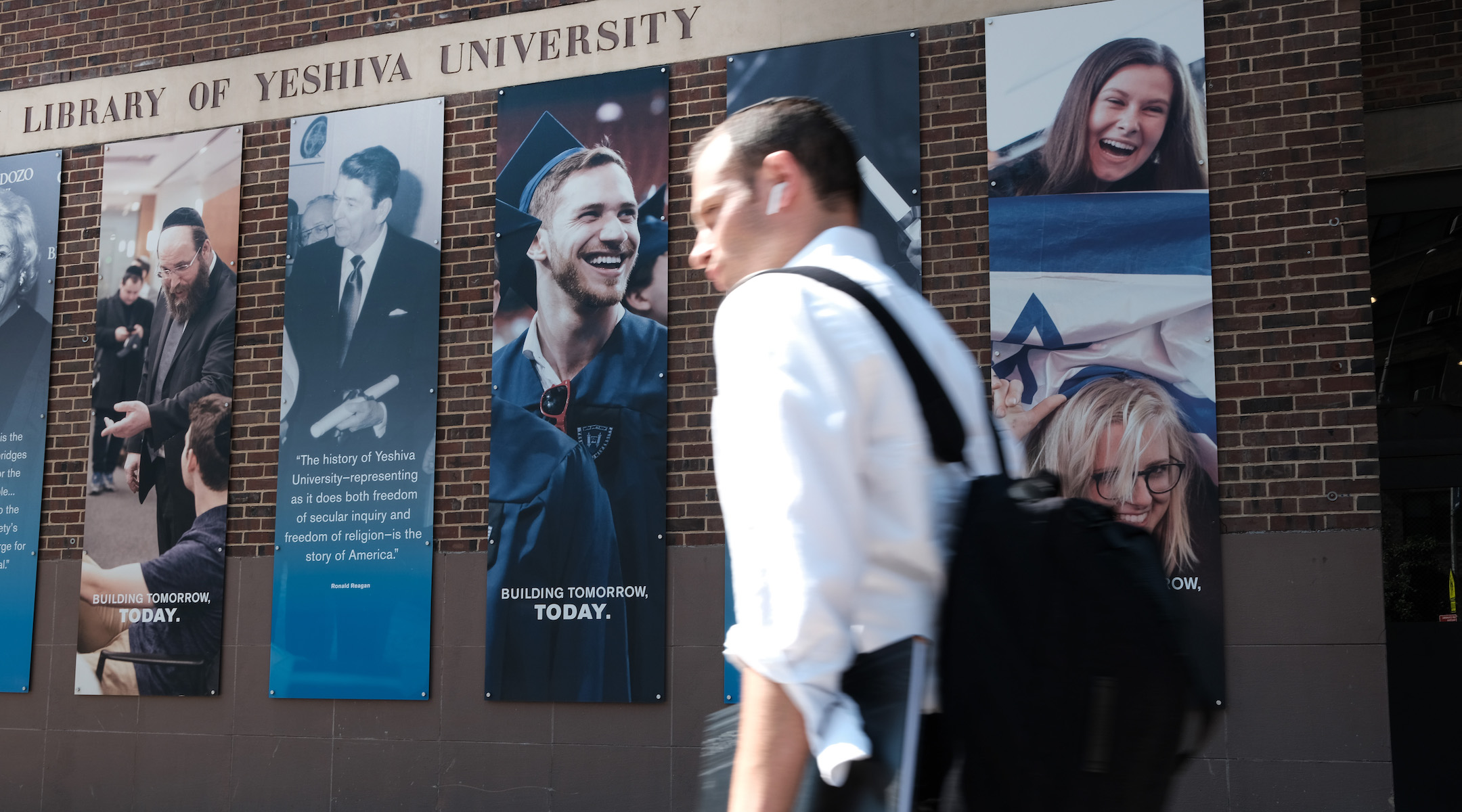YU creates new LGBTQ student club, still won’t recognize old one
The Orthodox Jewish university will continue to fight the YU Pride Alliance in court

The men’s campus of Yeshiva University in New York City. Photo by Spencer Platt/Getty Images
Yeshiva University has created a new club for LGBTQ students as “an approved traditional Orthodox alternative to YU Pride Alliance,” the school announced Monday, and it will continue to battle the queer student group that already exists in court.
In an email addressed to members of the YU community and posted on the school’s website, the school said the new group had the approval of Rabbi Hershel Schachter, the head of YU’s undergraduate Jewish Studies program, and “reflects input and perspectives from conversations between Yeshiva’s rabbis, educators, and current and past undergraduate LGBTQ students.”
It was not immediately clear how the new Kol Yisrael Arevim Club — named for an expression that means that all of Israel is responsible for one another — would differ from the Pride Alliance, whose lawsuit against the Orthodox Jewish university over official recognition is currently in a New York appeals court, other than in title. YU President Rabbi Ari Berman wrote that the national Pride Alliance movement “also promotes activities that conflict with Torah laws and values” and therefore was “inherently unacceptable in the context of Yeshiva.”
The news was reported first by the Deseret News.
The Pride Alliance, in a statement emailed later Monday, called the announcement “a desperate stunt” to distract from a growing chorus of current and former YU students, professors and donors demanding recognition of the club.
“The YU sham is not a club as it was not formed by students, is not led by students, and does not have members; rather, it is a feeble attempt by YU to continue denying LGBTQ students equal treatment as full members of the YU student community,” the group wrote.
The YU Pride Alliance has existed in some form since 2009 but its application for recognition has been consistently rejected by the school, apparently on the grounds that queer expression was inconsistent with the school’s values.
It sued the university this year for official recognition in New York County court, and in June, a judge ruled in favor of the club, saying that YU’s refusal was discriminatory.
With the fall semester approaching, YU filed an emergency petition with the U.S. Supreme Court for a stay on the ruling requiring it to recognize the group, saying it infringed on the school’s religious freedom. The petition was denied on the grounds that not all lower court appeals had been exhausted, but Justice Samuel Alito wrote in a dissenting opinion that the school would likely win were the Supreme Court to take the case.
Rather than recognize the group, the school then suspended all student activities. The YU Pride Alliance soon volunteered to a temporary stay on the ruling to allow other activities to resume.
As the case has attracted national media attention, the outcry from within the YU community has grown. More than 1,600 current and former students and faculty signed a letter to the university demanding it recognize the club. Several high-ranking faculty members also wrote a separate letter to YU students that appeared in the student newspaper, warning them that the school’s actions reflected poorly on them as students and prospective job applicants. And some YU-ordained rabbis have written to their congregations condemning the behavior.























